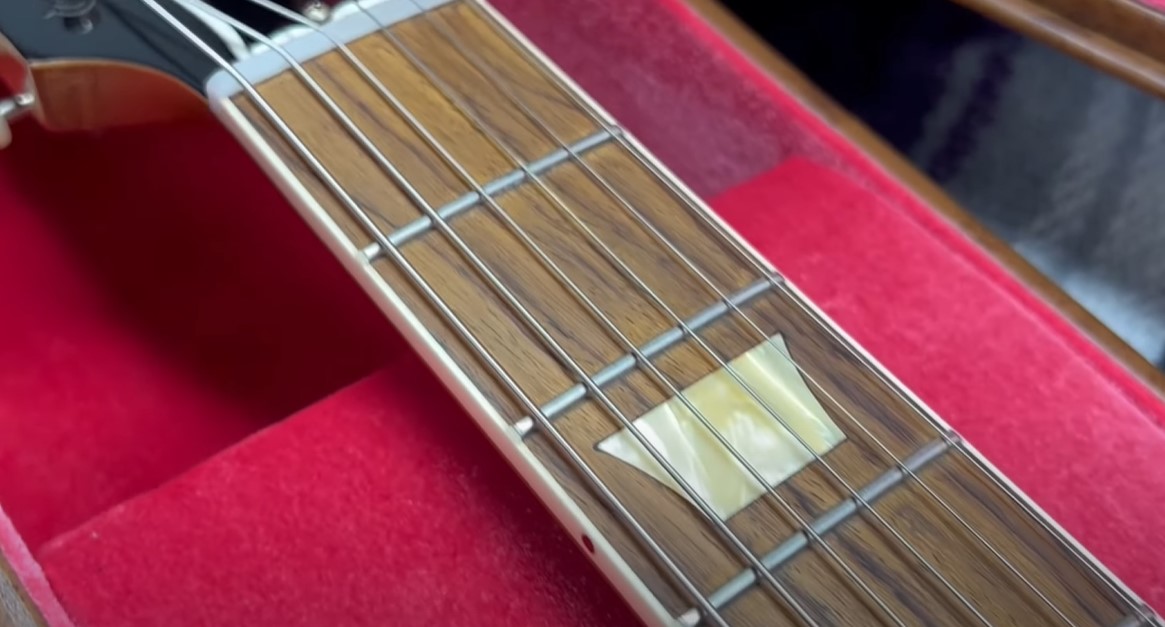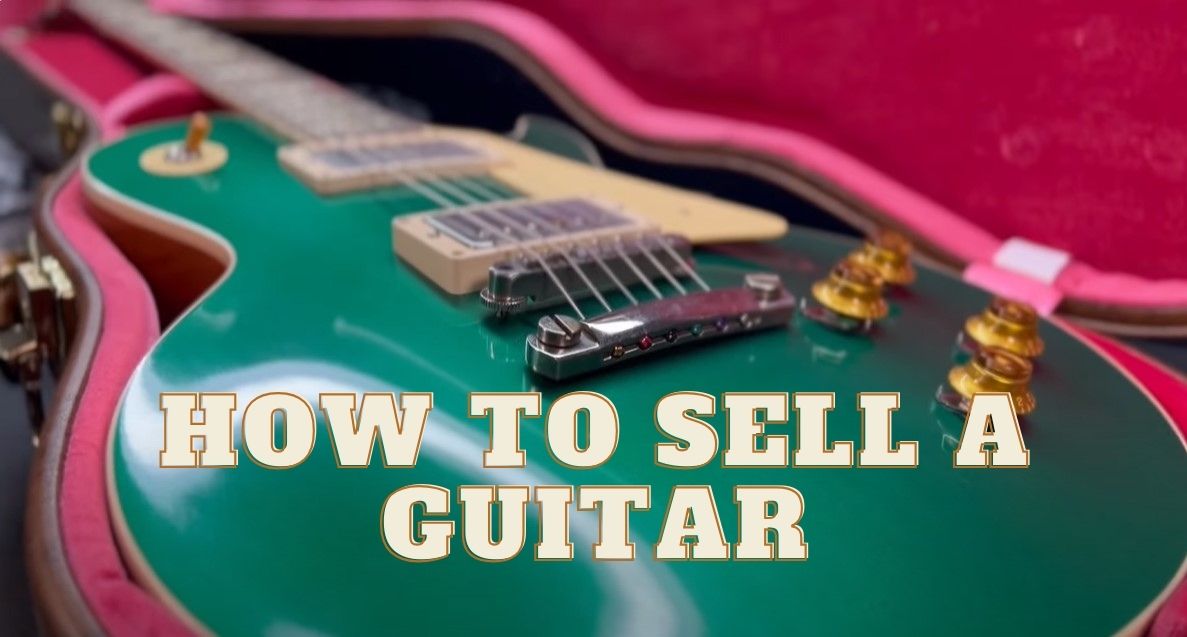Selling a guitar can be a rewarding experience, whether you’re upgrading to a new instrument, decluttering your collection, or simply looking to make some extra cash. However, it’s important to approach the process strategically to ensure you get the best value for your instrument. In this comprehensive guide, we’ll explore the best way to sell a guitar, from preparing it for sale to choosing the right platform and completing the transaction. Whether you’re selling a vintage guitar or a modern model, these steps will help you navigate the market with confidence.
Preparing Your Guitar for Sale
Assessing Guitar Condition
Before listing your guitar for sale, it’s crucial to assess its condition. The condition of your guitar will significantly impact its market value and appeal to potential buyers. Check for any signs of wear and tear, such as scratches, dents, or fret wear. Ensure that all components, including the neck, body, hardware, and electronics, are in good working order.
Cleaning and Setup
A clean, well-maintained guitar is more likely to attract buyers. Clean the body, neck, and hardware with appropriate cleaning products. Consider getting a professional setup to ensure that the guitar plays well and stays in tune. A setup typically includes adjusting the truss rod, intonation, and action, as well as cleaning and oiling the fretboard.
Taking High-Quality Photos
High-quality photos are essential for creating an appealing listing. Take clear, well-lit photos from multiple angles, highlighting key features and any imperfections. Include close-ups of the headstock, fretboard, body, and any unique features. Good photos help build trust with potential buyers and showcase the guitar’s condition.

Creating an Effective Guitar Listing
Writing a Detailed Description
An informative and detailed description can make your listing stand out. Provide information about the guitar’s make, model, year, and specifications. Mention any modifications or repairs, and describe the guitar’s history if it’s a vintage piece. Highlight the guitar’s strengths and any unique features that might appeal to buyers.
Pricing Your Guitar
Determining the right price is crucial for a successful sale. Research similar models to get an idea of the current market value. Consider factors such as condition, rarity, and demand. Be realistic about your pricing, as overpricing can deter potential buyers. If you’re unsure, you can check completed listings on platforms like eBay or Reverb to see what similar guitars have sold for.
Read also: How to Sell on Reverb
Choosing the Right Selling Platform
Online Marketplaces
Selling a guitar online offers a wide reach and convenience. Popular platforms include Reverb, eBay, and Craigslist. Each platform has its pros and cons, so choose one that best suits your needs. Reverb, for example, is specifically geared towards musical instruments and offers a dedicated audience of musicians.
How much does Reverb charge to sell a guitar? Reverb charges a 5% selling fee on the final sale price, plus a 2.7% payment processing fee. These fees are competitive and offer access to a large, targeted audience.
Selling to a Music Store
Selling to a music store, like Guitar Center, can be a quick and hassle-free option. How to sell a guitar to Guitar Center? Simply bring your guitar to a local store for appraisal. They will assess its condition and offer you a price. While this option may yield a lower payout compared to private sales, it eliminates the hassle of shipping and negotiating with buyers.
Local Classifieds and Social Media
Platforms like Craigslist, Facebook Marketplace, and local classified ads can also be effective. These options allow you to sell locally, avoiding shipping costs and facilitating face-to-face transactions. Be prepared to negotiate and meet with potential buyers.
Shipping Your Guitar
Packaging Your Guitar
If you’re selling online and need to ship your guitar, proper packaging is essential to prevent damage. Use a sturdy guitar case or gig bag and place it inside a larger shipping box with ample padding. Secure any loose parts and detune the strings slightly to relieve tension on the neck.
Choosing a Shipping Service
Select a reliable shipping service with tracking and insurance options. UPS, FedEx, and USPS all offer services suitable for shipping guitars. Ensure that the guitar is fully insured for its market value to protect against loss or damage during transit.
Frequently Asked Questions
How can I determine the value of my guitar?
Determining the value of your guitar involves several factors, including its make, model, age, condition, and any unique features or modifications. Researching similar models online, checking completed listings on platforms like eBay and Reverb, and consulting with local music stores or appraisers can help you get an accurate estimate of your guitar’s market value.
What are the best platforms to sell a guitar online?
The best platforms for selling a guitar online include Reverb, eBay, and Craigslist. Reverb is specifically designed for musical instruments and offers a targeted audience of musicians. eBay provides a broad reach and auction options, while Craigslist allows for local, in-person transactions. Each platform has its pros and cons, so choose one based on your needs and preferences.
How should I package my guitar for shipping?
Proper packaging is crucial to ensure your guitar arrives safely. Use a sturdy guitar case or gig bag and place it inside a larger shipping box with ample padding. Detune the strings slightly to relieve tension on the neck, and secure any loose parts. Use bubble wrap, foam, or packing peanuts to fill any gaps and prevent movement during transit. Ensure the box is securely sealed and labeled as fragile.
What fees should I expect when selling my guitar on Reverb?
When selling a guitar on Reverb, you can expect to pay a 5% selling fee on the final sale price, plus a 2.7% payment processing fee. These fees are competitive compared to other online marketplaces and provide access to a large audience of musicians. Be sure to factor these costs into your pricing strategy to ensure you achieve your desired profit.
Can I sell my guitar to a music store like Guitar Center?
Yes, you can sell your guitar to a music store like Guitar Center. To do so, bring your guitar to a local store for appraisal. The staff will assess its condition and offer you a price based on its market value. This option is convenient and eliminates the need for shipping and negotiating with buyers, though it may yield a lower payout compared to private sales.
Visitor Reviews
- John Smith: “Selling my guitar was an overwhelming task at first, but with the right approach, it became much simpler. I started by thoroughly cleaning my guitar and taking high-quality photos from every angle. Listing it on Reverb proved to be a great choice, as it reached a wide audience of musicians who appreciated the details I provided. I found the pricing guidance and secure payment options extremely helpful. In the end, I sold my guitar for a fair price and the buyer was thrilled with the purchase. The entire process was smooth and rewarding.”
- Emily Johnson: “I decided to sell my vintage guitar to upgrade to a newer model. I did a lot of research on various platforms and settled on eBay because of its large user base. I detailed the guitar’s history and condition in the listing, and included numerous high-quality photos. It took a couple of weeks, but I eventually found a buyer who was passionate about vintage instruments. We communicated frequently to ensure the guitar was exactly what they wanted. Shipping it was a bit nerve-wracking, but I used plenty of padding and insurance. The buyer was very happy with the purchase, and I felt satisfied with the entire experience.”
- Michael Brown: “Selling a guitar locally on Craigslist was my preferred method, as I wanted to avoid shipping. I posted a detailed listing with clear photos and an honest description of the guitar’s condition. I also priced it competitively based on similar listings. I got a few inquiries and scheduled safe, public meetups with potential buyers. After a few meetings, I found the right buyer who appreciated the guitar’s features. The transaction was straightforward, and I received cash on the spot. It was a convenient and efficient way to sell my guitar.”
- Sarah Davis: “I opted to sell my guitar through Guitar Center because I wanted a quick and hassle-free process. I brought my guitar to the nearest store where they appraised it on the spot. The offer was reasonable, considering they handle all the resale details. While I probably could have gotten a higher price selling it privately, the convenience of walking away with cash the same day was worth it. The staff was professional and knowledgeable, making the experience pleasant. It was a great option for someone who doesn’t want to deal with the complexities of online sales.”
- David Wilson: “Reverb was my platform of choice for selling my guitar, given its reputation among musicians. The listing process was user-friendly, and I appreciated the guidance on pricing. I made sure to include a comprehensive description and professional-quality photos. Within a week, I received several offers and finally sold the guitar to a buyer in another state. The communication tools on Reverb made it easy to finalize details and arrange secure payment. Shipping the guitar was a bit stressful, but following Reverb’s packaging tips ensured it arrived safely. Both the buyer and I were satisfied with the transaction.”
- Jessica Martinez: “As a first-time seller, I was nervous about selling my guitar online. After reading reviews and tips, I chose eBay for its wide reach and auction capabilities. I took time to write a thorough description, highlighting the guitar’s unique features and condition. I also researched pricing to set a fair starting bid. The auction format was exciting, and I ended up getting more than I expected. Shipping was straightforward with eBay’s recommended services, and I made sure to fully insure the package. The buyer left positive feedback, and I felt accomplished having successfully sold my guitar.”
Finalizing the Sale
Communicating with Buyers
Good communication is key to a successful sale. Respond promptly to inquiries and be transparent about the guitar’s condition and history. Answer any questions buyers may have and provide additional photos or information if requested.
Completing the Transaction
Once a buyer has committed to purchasing your guitar, arrange for payment and delivery. Use secure payment methods, such as PayPal or bank transfers, to protect both parties. If selling locally, meet in a safe, public place to complete the transaction.

Leave a Reply